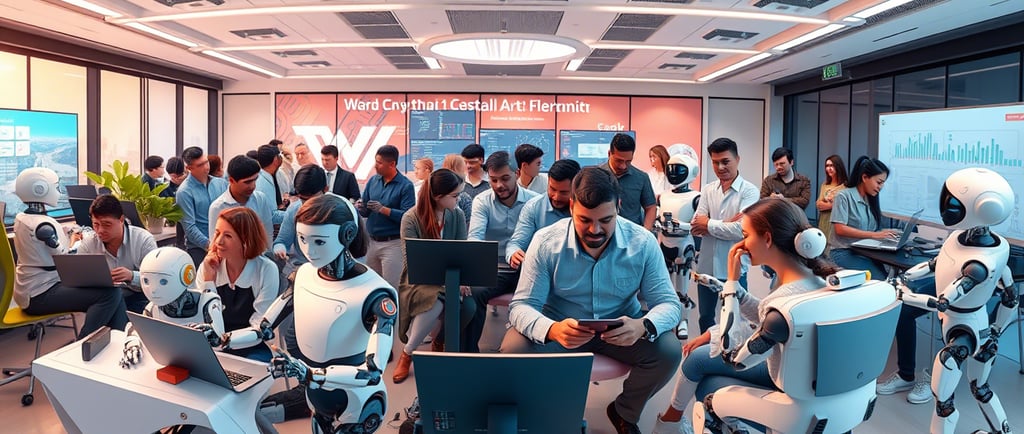Future-Proofing Your Skills: Where Do You Stop Learning When AI Does the Work?
What if you spent months mastering the basics of a skill, only for AI to automate it entirely? With tools now capable of coding, designing, and analyzing data faster (and often better) than humans, where do we draw the line? Do you stop at the fundamentals, or skip straight to controlling the machines doing the work?
Mané Gallo
2/20/20252 min read


This question has been on my mind a lot lately. As someone with over a decade of experience in tech (but starting fresh with a new skill) I’m navigating this exact dilemma. The pace of change feels overwhelming. Every other day, there’s a new tool promising to make workflows faster, easier, and more efficient. It’s exciting, sure, but also terrifying. How do I know what’s worth learning when everything seems destined to be replaced by something shinier?
Let me break it down. A few weeks ago, I decided to dive into data visualization because it felt like a practical, in-demand skill. But almost immediately, I started second-guessing myself. Why spend hours learning Python libraries like Matplotlib or Seaborn when AI tools can generate stunning dashboards in minutes? Should I even bother with SQL if platforms now pull insights directly from raw data without needing complex queries?
At first, this uncertainty paralyzed me. I found myself stuck in analysis paralysis. Reading articles, watching tutorials, and trying to predict which skills would still matter five years from now. But here’s the thing: while predicting the future is impossible, waiting for clarity isn’t an option. Time is precious, especially when you’re juggling responsibilities outside of learning.
So, I’ve come up with a strategy that works for me, and maybe it’ll resonate with you too. First, I focus on getting just enough foundational knowledge to understand how things work, not to become an expert, but to speak the language. For example, I don’t need to memorize every Pandas function; I just need to know how data manipulation happens conceptually. Once I have that baseline, I move on.
The real game-changer? Building projects. Instead of endlessly consuming information, I force myself to create something tangible, even if it’s imperfect. Whether it’s visualizing public datasets or automating repetitive tasks, these small wins build confidence and keep me grounded. Plus, they help me test whether the skills I’m learning are actually useful in practice.
And let’s not forget relationships. Tools may evolve, but people remain constant. Collaborating with others has taught me more than any tutorial ever could. Sharing struggles, celebrating progress, and exchanging ideas keeps me motivated and reminds me why I started this journey in the first place.
Here’s my takeaway: Don’t let perfection be the enemy of progress. Yes, AI will continue to reshape industries, but that doesn’t mean your efforts are futile. Focus on understanding the “why” behind the tools, experiment fearlessly, and trust yourself to adapt. After all, staying relevant isn’t about knowing everything, it’s about moving forward, even when the path feels uncertain.
So, where will you start today? Let’s figure this out together—one project at a time.
Are you facing similar challenges? What strategies are helping you navigate the balance between learning fundamentals and leveraging AI tools? Share your thoughts, I’d love to hear how others are tackling this wild ride!
